In today’s world, where energy conservation is crucial for both environmental sustainability and cost-saving measures, it’s essential to be mindful of our energy usage, especially within our homes. With the rising concerns about climate change and escalating utility bills, finding ways to reduce energy consumption has become a top priority for many homeowners. Fortunately, there are numerous simple yet effective steps you can take to make your home more energy-efficient. In this blog post, we’ll explore the top 10 energy-saving tips that can help you lower your electricity bills and minimize your carbon footprint.
1. Upgrade to Energy-Efficient Appliances:
Investing in energy-efficient appliances can significantly reduce your household’s energy consumption. Look for appliances with ENERGY STAR® ratings, which are designed to use less energy without compromising performance. From refrigerators and washing machines to HVAC systems and water heaters, upgrading to energy-efficient models can lead to substantial long-term savings.
2. Optimize Heating and Cooling Systems:
Heating and cooling account for a significant portion of household energy usage. To optimize your HVAC system’s efficiency, schedule regular maintenance to clean or replace air filters, check for leaks in ductwork, and ensure proper insulation in your home. Additionally, consider installing a programmable thermostat to adjust temperatures based on your schedule, saving energy when you’re away or asleep.
3. Seal Air Leaks:
Drafts around windows, doors, and other openings can cause your heating and cooling systems to work harder to maintain comfortable indoor temperatures. Seal air leaks with weatherstripping, caulking, or insulation to prevent heat loss in the winter and keep cool air indoors during the summer months.
4. Upgrade Lighting:
Replace traditional incandescent bulbs with energy-efficient LED or CFL (compact fluorescent lamp) bulbs. LED bulbs consume significantly less energy and last much longer than incandescent bulbs, making them a cost-effective lighting solution for your home. Additionally, consider installing motion sensors or timers to automatically turn off lights in unoccupied rooms.
5. Unplug Electronics When Not in Use:
Many electronic devices consume energy even when they’re turned off but remain plugged in. Unplug chargers, appliances, and electronics when they’re not in use, or use smart power strips to cut off power to multiple devices with a single switch.
6. Reduce Water Heater Temperature:
Lowering the temperature of your water heater can help conserve energy and prevent overheating. Most households can comfortably set their water heater thermostat to 120 degrees Fahrenheit (49 degrees Celsius) without sacrificing hot water quality, reducing energy consumption and the risk of scalding.
7. Install Energy-Efficient Windows:
Energy-efficient windows with double or triple glazing, low-emissivity coatings, and insulated frames can significantly reduce heat transfer, improving your home’s insulation and reducing the workload on your heating and cooling systems.
8. Use Energy-Saving Power Strips:
Plug electronic devices, such as computers, televisions, and gaming consoles, into energy-saving power strips. These strips can detect when devices are in standby mode and cut off power to prevent phantom energy usage, saving electricity and reducing your utility bills.
9. Harness Natural Light:
Maximize natural light in your home by opening curtains and blinds during the day to reduce the need for artificial lighting. Consider installing skylights or solar tubes in dark areas to further brighten your living space while minimizing energy consumption.
10. Invest in Renewable Energy Sources:
Consider investing in renewable energy sources, such as solar panels or wind turbines, to generate clean, sustainable power for your home. While the initial investment may be substantial, renewable energy systems can significantly reduce or even eliminate your reliance on grid electricity over time, providing long-term savings and environmental benefits.By implementing these energy-saving tips in your home, you can lower your electricity bills, reduce your carbon footprint, and create a more sustainable living environment for future generations. If you need assistance with upgrading your electrical systems or implementing energy-efficient solutions in your home, contact Define Electrical today. Our team of skilled professionals can provide expert guidance and services tailored to your specific needs. Let’s work together to create a brighter, greener future for all!Contact Define Electrical for all your electrical needs: Contact us now to schedule a consultation!
 In today’s world, where energy conservation is crucial for both environmental sustainability and cost-saving measures, it’s essential to be mindful of our energy usage, especially within our homes. With the rising concerns about climate change and escalating utility bills, finding ways to reduce energy consumption has become a top priority for many homeowners. Fortunately, there are numerous simple yet effective steps you can take to make your home more energy-efficient. In this blog post, we’ll explore the top 10 energy-saving tips that can help you lower your electricity bills and minimize your carbon footprint.
In today’s world, where energy conservation is crucial for both environmental sustainability and cost-saving measures, it’s essential to be mindful of our energy usage, especially within our homes. With the rising concerns about climate change and escalating utility bills, finding ways to reduce energy consumption has become a top priority for many homeowners. Fortunately, there are numerous simple yet effective steps you can take to make your home more energy-efficient. In this blog post, we’ll explore the top 10 energy-saving tips that can help you lower your electricity bills and minimize your carbon footprint.

